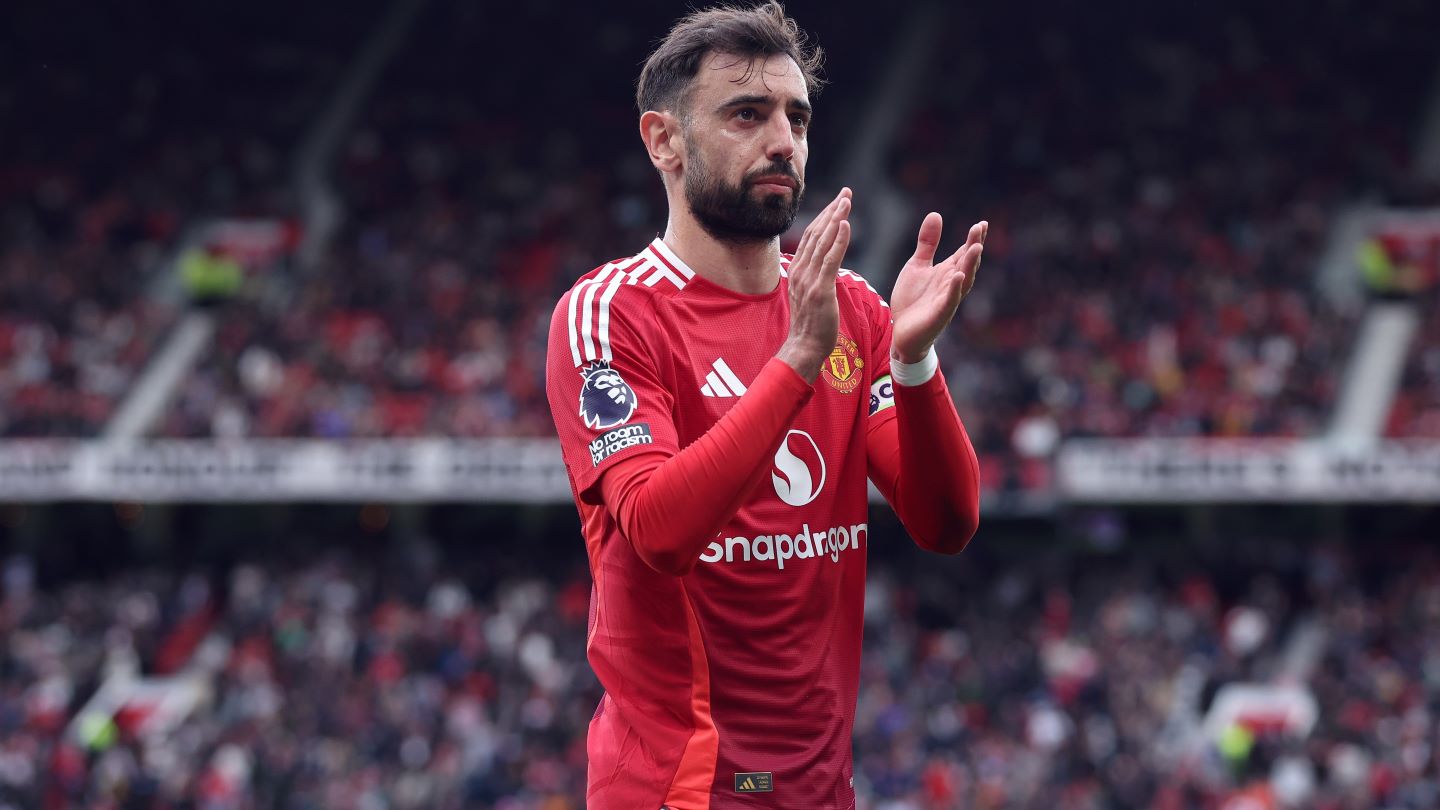
Manchester United, the beleaguered English soccer giants, have posted a 17% increase in revenue and a slight profit for the third quarter (Q3) of the 2024-25 financial year.
The Premier League side generated total income of £160.5 million ($217.9 million) for the three months ending March 31, 2025, across all three key revenue streams – commercial, broadcast, and matchday. This was up from £136.7 million in 2024.

Discover B2B Marketing That Performs
Combine business intelligence and editorial excellence to reach engaged professionals across 36 leading media platforms.
The increase was driven by additional matches (year-on-year) played in the quarter in the pan-continental UEFA Europa League. Manchester United ultimately made it to the final of UEFA's secondary club competition in May, but lost 1-0 to Tottenham Hotspur.
The club’s commercial revenue for Q3 came in at £74.7 million, up 7.3% from £69.6 million last year.
Sponsorship revenue was £42.5 million, an increase of £1.8 million over the prior year quarter, primarily due to the new Qualcomm front-of-shirt sponsorship agreement.
Retail, merchandising, apparel, and product licensing revenue was £32.2 million (up £3.3 million).

US Tariffs are shifting - will you react or anticipate?
Don’t let policy changes catch you off guard. Stay proactive with real-time data and expert analysis.
By GlobalDataBroadcasting revenue for the quarter stood at £41.3 million, an increase of £3.8 million, due to the men’s first team playing four additional matches in the Europa League in the quarter, partially offset by one less match played in domestic cup competitions compared to the prior year.
Meanwhile, matchday income for Q3 was £44.5 million, a £14.9 million rise from 2024 due to playing four more home matches compared to the prior year, as well as what the club claims was “strong demand” for its hospitality offering.
Adjusted EBITDA (earnings before interest, taxation, depreciation, and amortization) was £51.2 million, up 274% from £13.7 million in Q3 2024.
For the quarter, Manchester United posted a small profit of £700,000 after a loss of £66.2 million last year.
The club’s total operating expenses for the quarter were £162.1 million, a decrease of £41.6 million, or 20.4%, over the previous year.
For the full financial year, Manchester United have adjusted their revenue guidance to between £660 million and £670 million, while raising their adjusted EBITDA guidance to between £180 million and £190 million.
For Q1 and Q2, the team generated revenue of £198.7 million and £143.1 million, respectively, both decreases from 2024.
The team had a disastrous 2024-25 season, with the Europa League final loss coupled with a 15th-place finish in the Premier League, which is likely to have financial implications as the club will not feature in European competition next year.
The club’s minority owner, Sir Jim Ratcliffe (who holds a 29% stake), has so far made in the region of 250 employees redundant and is reportedly set to instigate a second round of redundancies – which could affect another 200 staff – soon.
Some media reports have suggested he fears for the club’s financial viability if such cutbacks are not enacted.
Ratcliffe was confirmed as a minority stakeholder in February 2024, taking over operational control of all on-pitch matters from the unpopular Glazer family.
Chief executive Omar Berrada, who was hired by Ratcliffe from rivals Manchester City last year, has said: “We were proud to reach the final of the UEFA Europa League, but ultimately, we were disappointed to finish as runner-up in Bilbao. We had a difficult season in the Premier League, which we all know fell below our standards, and we have a clear expectation of improvement next season.
“We remain focused on infrastructure, with the redevelopment of our Carrington Training Complex continuing and on track. We have also announced our aspiration to pursue a new 100,000-seat stadium, sitting at the heart of the regeneration of the Old Trafford area, which would be a catalyst for growth and investment in our local community. We are continuing to work with all the relevant stakeholders, including central government, to support their vision for growth.”





